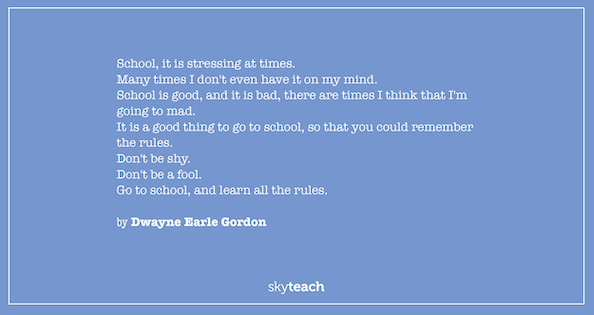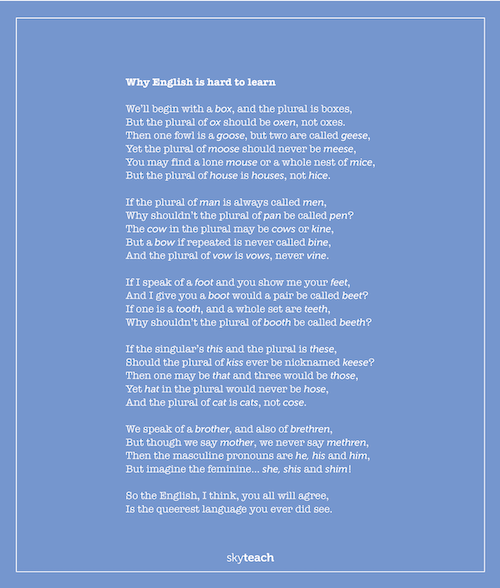While working with teenagers, a teacher can hear: “Yuck! I hate poetry! We have to read poems in our first language and they are really long and tedious for us.” So why should teachers force teens to read poems? In this article, we collected simple and effective steps towards integrating poems in your ordinary class activities.
Teenagers are no more as easy-going as young learners in junior school who enthusiastically support any activity suggested by the teacher. Some adolescents start being rebels and everything given by an adult is accepted as ‘not cool’. That is why it is important to gradually integrate poems in your classroom with teenagers and adapt the activities to what is considered ‘trendy’ among them.
Why poems?
Poems are an engaging way to show how the language works. Listening to a poem one can predict what happens next with the help of rhyming lines. Poetry imposes predictable patterns and language chunks. Poems can help teens remember certain grammar construction if a certain speech pattern is repeated from line to line. Because of rhyme, teens will remember the pronunciation of complicated words.
What can we do with poems and teens?
Start a lesson with a poem introducing a topic. Do not choose a long one, let it be short or take just a relevant part

You can leave out the word “school” and ask your teens to guess what the poem is about. Then they can compare their attitude to school with the poet’s one.
Perform a gap-filling task with a poem using pictures, pay students’ attention to the fact that lines should rhyme.
An example of the task with the poem.

As it was mentioned earlier, poems can be a fun way to teach or present grammar. With the help of the following poem, a teacher can present regular and irregular plural nouns and typical mistakes to teen students in an engaging way.

Order the verses in a logical way to attract teens’ attention not only to form but the sense of a poem.
Show students a picture illustrating the poem and suggest them to guess the topic of the poem. Watch a video or listen to a recording with a poem being beautifully read to enjoy the poetry. Ask your students to draw the images that come to their mind when they hear it. Ask students about the mood of the poem and the feelings it causes. Ask them to retell the story from the poem to their partner afterward. Let them use their drawings as the basis for the task.
Organize poetry readings in class. Let the students choose the poem they like (you may suggest teens using this website), rehearse at home, and then read the poem aloud in class.
Announce “poetry month” or, at least, “poetry week”. During the week, include in your classes diverse activities related to poems, let students create posters, read the biographies of authors and share interesting facts about them. Let students immerse in the world of poetry and appreciate their interest. At the end of a week or month, it could be great to create a Jeopardy game or, at least, Kahoot to check students’ knowledge. Don’t forget to praise the winners!
Another idea could be to roleplay the poem. One student reads the poem aloud, and other students act to show what happens.
Don’t forget to choose poems in accordance with the students’ level. It is OK if they don’t understand a couple of words, but teenagers will be demotivated if every word is to be translated.






 Вероника Аветисян
Вероника Аветисян 
 Маргарита Аветисян
Маргарита Аветисян 


